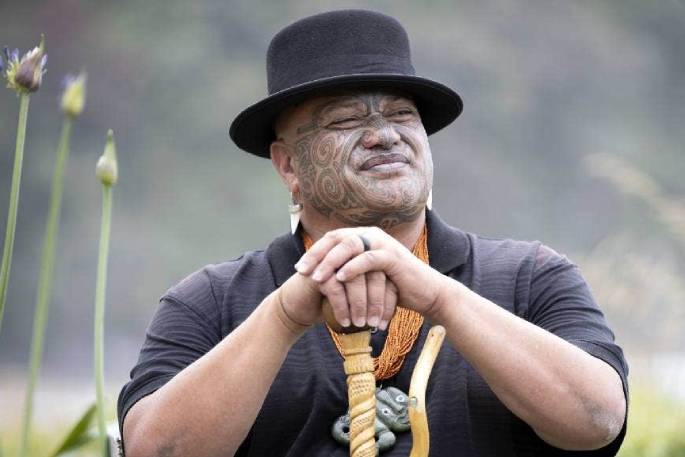Dr Pouroto Ngaropo is a busy man. Even getting a chance to speak with him means catching him in the car between hui.
But as he drives across Tauranga back home to Mataatua Marae, he's relaxed about the intrusion.
After 25 years of mahi setting up and maintaining Te Moana a Toi, the Māori health rūnanga representing Māori at the table of the Bay of Plenty District Health Board, his shift has ended.
An iwi-Māori partnership board will be stepping into the rūnanga's place as the Māori Health Authority launches on Friday, continuing the work of Ngaropo and other kaumātua who have kept alive the aspirations of the 18 iwi they represented.
Ngaropo was 28 when his whānau laid down a wero (challenge) for him to create Te Moana a Toi in 1997 (then called Te Whānau Poutirirangi-ora-a-papa and Poutiri Trust), the healthcare governance blueprint for the region, built on trust and partnership between Māori and the DHB.
It's this legacy, and the grassroots guidance and direction from ngā iwi o Te Moana a Toi, that is the wero that he now places on those who are taking over the role in his region, and across Aotearoa.
To understand the need to have iwi and hapū representation at the governance level of healthcare, you first have to understand the past 200 years and accept the impact colonisation has had on the health of Māori, Ngaropo says.
Raupatu (land confiscation) led to a disconnect from traditional food sources – from awa, moana, ngahere and Papatūānuku. Loss of reo disconnected whānau from their spirituality and their identity. The Westminster system of government struggled to accept, understand, and protect Māori, causing mistrust in the Crown. All of those factors have had an impact on the toiora (wellbeing) of Māori physically, mentally and spiritually, Ngaropo says.
'Our people have had to endure a lot in terms of what whole transition from colonisation to empowered people who look after our health at all levels.”
But it's the partnership and trust between Māori and Pākehā that's the key to moving forward, Ngaropo says.
Although, back in 1997, it wasn't getting Pākehā leaders on board for Te Moana a Toi that was the struggle in Bay of Plenty, it was iwi.
'The biggest thing was getting across to the 18 iwi across the region that what was being set up would be reflective of them as a Treaty partner, would be reflective of their voice, that they would be heard and not another token committee,” Ngaropo says.
To show hapū across the rohe that the governance rōpū was authentic he knew he needed to bring in the big guns.
'We formed a kaumātua council group. The kuia and koroua, the elderly women and the elderly men, the wise old ones of the tribes, they were the ones that were the backbone of the whole process.”
Under the mana of the kaumātua, Ngaropo, the rōpū and the DHB's top brass visited marae across the 18 iwi in the rohe, asking them what was wrong with the health system from a te ao Māori perspective, and what was missing.
Unsurprisingly, it was a lot, Ngaropo says.
Policies that enabled tikanga, such as taking home the whenua or afterbirth to be buried, didn't exist. Te reo Māori wasn't an option during any part of the clinical process. Throughout their wānanga at marae, it became clear that the healthcare Māori had been receiving was culturally unsafe, Ngaropo says.
'There was like dial-up kaumātua for certain things, there was some Māori staff who were in there, but they were the utility person and had to do 100 things at once.
'There was a huge gap that wasn't being done in the Māori approach, in fact there was probably more of a token Māori approach.”
Ngaropo's five-month time frame to get the green light from the 18 iwi after the wānanga may have been missed by 13 months, but what they gained in that time was the trust of tangata whenua to represent, advocate, and make real changes that would impact the lives of whānau who needed help.
'Time is not the essence of what we were doing, the essence of what we were doing was making sure we got it right.
'Gaining that trust amongst one another, it enabled a Māori approach and a Pākehā-European approach to work.”
The Māori Health Authority is another step forward for Māori in gaining equity in healthcare across Aotearoa, something which pleases Ngaropo.
However, Ngaropo is concerned that those who are taking over the representation in his rohe won't be as effective as Te Moana a Toi in representing iwi. He is also worried that resources will be held up in bureaucracy, putting up barriers for grassroot organsations that can make an instant impact.
Send your tips, story ideas and comments to poutiaki@stuff.co.nz



0 comments
Leave a Comment
You must be logged in to make a comment.